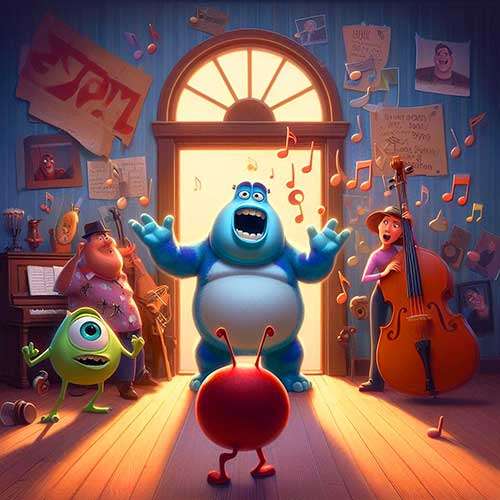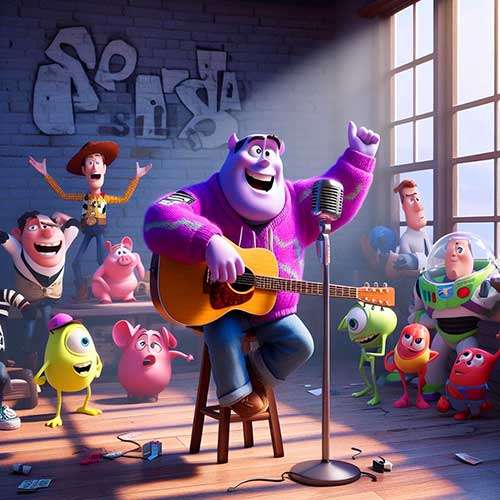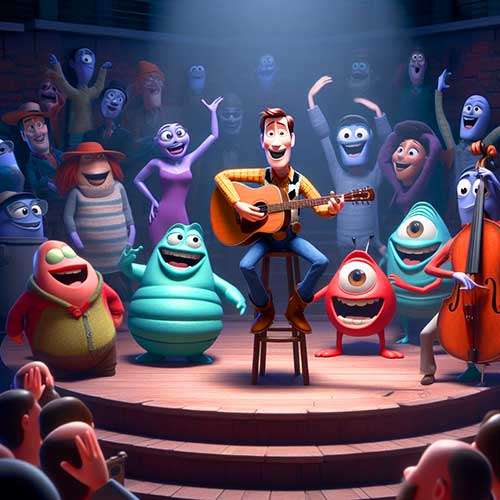Since I’ve been writing and posting song parodies on YouTube recently I thought it would be fun to talk about some questions and answers regarding this type of music satire.

Q: What is a song parody?
A: A song parody is a humorous take on a well-known song, borrowing its melody but changing the lyrics to tell a new story, poke fun at the original, or playfully comment on a particular situation. Think of it as a costume party for songs, where they keep the familiar tune but dress up in new, often funny, lyrics.
A: Song parodies are created by a wide range of artists, from dedicated comedic musicians like “Weird Al” Yankovic to online creators like David Lopez making videos on YouTube. Even some bands have gotten in on the act, with artists like They Might Be Giants known for their playful twists on musical styles.
Q: What is a song parody example?
A: A classic example of a song parody is “Weird Al” Yankovic’s “Eat It,” which takes the melody and rhythm of Michael Jackson’s “Beat It” but replaces the lyrics with a comedic story about disliking vegetables. It highlights the key features of a parody: using a familiar song’s structure to tell a new, humorous story.

Q: Who is the most famous song parody singer?
A: The undisputed king of song parodies is “Weird Al” Yankovic. With decades of experience, multiple Grammy awards, and hits like “Eat It” (a parody of Michael Jackson’s “Beat It”), his comedic takes on popular music have earned him a massive fanbase and cemented his place as the most famous song parody singer.
Q: What does parody mean in a song?
A: In a song, parody means creating a humorous imitation of a well-known song. It borrows the original’s melody or musical style but replaces the lyrics with something new. This can be to poke fun at the original song, make a social commentary, or just create a laugh through the familiar tune’s unexpected twist.
Q: Is it illegal to parody a song?
A: No, parodying a song isn’t necessarily illegal. In the US, parodies can fall under “fair use” which allows limited use of copyrighted material for criticism or humor. However, it’s not a guaranteed defense. The parody should be transformative (add something new) and not just copy the original song. It’s always safest to consult a lawyer if you have concerns.
Q: What are the typical themes of song parodies?
A: Song parodies often target themes common in the original genre they’re spoofing. A love song parody might become a hilarious rant about laundry duty, while a gangsta rap parody could focus on the struggles of meal planning. Pop culture references, everyday annoyances, and social commentary are also popular themes, all using the familiar melody to deliver a fresh and funny message.
Q: How do I get started in writing song parodies?
A: Pick a song you love (and know well!) that has a catchy melody. Listen closely to the rhythm and rhyming scheme of the verses and chorus. Brainstorm funny or interesting themes that twist the original message. Try replacing words in the original lyrics with synonyms or rhymes that fit the new theme. Sing your new lyrics along with the original song to make sure they flow and keep the humor!

So, there you have it with some common questions and answers about song parodies. And, how that you have this information, get to writing!
